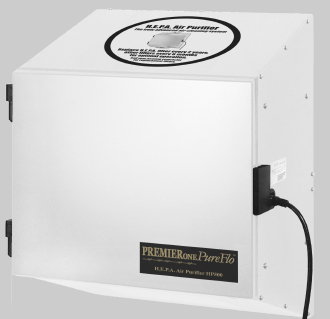
How A/C Filtration Systems Work
Every air conditioner, whether it’s an HVAC system with ductwork in your home or a window-mounted unit, has some kind of air filtration.
From a functionality standpoint, these filters help a system run more efficiently. If dust and debris was able to hurdle through your HVAC system and coat all the internal components you would see a significant drop in efficiency and a dramatic increase in utility and repair costs.
The quality of an air filter is denoted by a minimum efficiency report value (MERV) rating. The most basic levels are MERV-1 through MERV-4. This grade of filter is intended to do the baseline job of preventing debris from entering the system. The quality of filter options goes far beyond this basic level and purpose. Higher-tier filters don’t just keep debris out of your system, they can also keep dangerous pollutants out of the air your household breathes.
The Basics of How Traditional Air Filters Work
- Filters are installed at the air return in your home (or somewhere between the return vent and air handler)
- Air pulled into the return from the home’s interior passes through the filter
- Particulate matter and other pollutants are caught in the filter instead of recirculating in the home
Not every HVAC system has the filter in the same place. If you can’t locate the air filter on your system you may want to look up the model through your manufacturer or ask your HVAC technician during your next system tune-up.
Know Your Filter Size Before Buying Replacements
There are dozens of potential dimensions for filters. When you’re stocking up on replacements, which you should be able to find at most hardware stores, make sure you’re buying the right size for your system.
Minimum Efficiency Report Value (MERV) Ratings for Air Filters
- MERV 1 – 4: Removes pollen, dust mites, carpet fibers and other large debris
- MERV 5 – 8: Removes some mold spores
- MERV 9 – 12: Removes some fumes
- MERV 13 – 16: Removes some bacteria, smoke and airborne droplets from sneezes or coughs
- MERV 17 – 20: Removes viruses and airborne matter as small as 0.3 microns
HEPA Filters (MERV 17 – 20) and ULPA Filters (MERV 20)
- HEPA:99 percent of particles as small as 0.3 micrometers
- ULPA:9995 percent of particles as small as 0.12 micrometers
For most home applications, HEPA is perfectly adequate to eliminate bacteria and viruses. Most hospitals utilize HEPA filtration. ULPA filters tend to be used in microelectronic manufacturing clean rooms or similar environments.
HEPA and ULPA Downsides
- Both HEPA and ULPA filters restrict airflow (especially ULPA filters) due to the denseness of the material
- These filters cost a lot more and could damage your system (due to reduced airflow and increased strain), resulting in even higher costs
Before upgrading to a HEPA or ULPA filter, check with your system’s manufacturer or your HVAC specialist to determine whether your system is compatible with these filter formats.
What Are HVAC UV-C Germicidal Lights (UVGI)?
UV-C, or short-wave light, is the most effective wavelength for killing germs and viruses. Specialized UV-C lights are installed in water treatment plants and water machines, used in hospitals and doctors’ offices and installed in HVAC systems to eliminate not only bacteria and viruses but also mold, fungus, spores and mildew.
UV-C light is dangerous and can damage the skin and eyes of animals and people. They should only be installed by experienced HVAC experts who understand proper placement to maximize efficacy while ensuring there’s no external exposure outside the HVAC system.
What Are Polarized Media Filters?
A polarized media filter has an electric current running through the middle layer of the filter to create polarization. This polarized layer attracts small particulate matter like a magnet. When combined with HEPA-level filters, polarized media systems maintain exceptional home indoor air quality.
Types of Indoor Air Quality Products Installed by Vito Services
We understand how important our clients’ indoor air quality is for their own health and peace of mind, which is why we supply and install a variety of highly effective solutions backed by science and proven efficacy.
Vito Services installs both HVAC UV-C Germicidal Light and Polarized Media filter systems. Both of these require professional installation to function safely and properly. Improper placement of UV-C lights can result in ineffectiveness or could even put your family at risk.
We are committed to helping our clients make informed decisions about their indoor air quality, which is why your technician will take all the time necessary to explain your options, how these air cleaning systems work and give you system options to fit your particular budget.
If you want to maintain hospital-grade indoor air quality, contact Vito Services in Rockville, MD at 301-251-0211 (800-438-8486) for an installation consultation.
